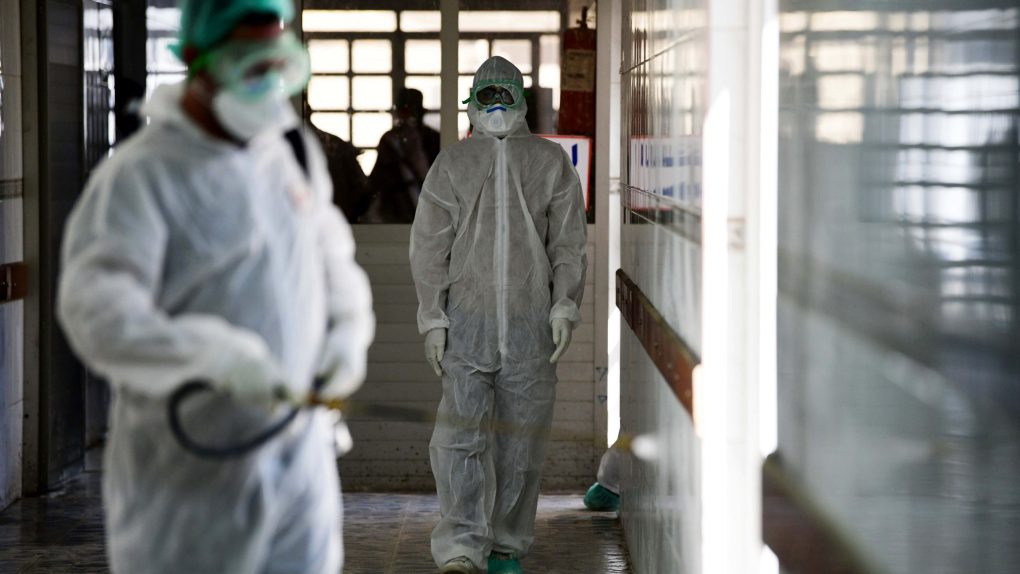- A novel coronavirus patient in serious condition thinks a last-minute hydroxychloroquine treatment saved his life.
- The anti-malarial drug made the news in recent days following President Trump’s enthusiasm display when talking about a potential chloroquine-based COVID-19 therapy.
- A limited study in France showed the anti-malaria drug may be promising against the coronavirus, while a study in China showed no evidence to support such claims. The WHO has included the drug in an ample trial to determine a potential COVID-19 treatment protocol.
- Visit BGR’s homepage for more stories.
The novel coronavirus is such a massive threat right now because it’s highly contagious, it has a long incubation period, it can be asymptomatic or mimic the signs of the common flu, and it has no cure. Scientists have been rushing to understand the pathology of COVID-19 since it emerged in China nearly three months ago, and we saw incredible results since then. But we still don’t have a treatment protocol that can increase recovery times and kill the virus before it can cause life-threatening respiratory complications. The World Health Organization (WHO) is overseeing a massive trial of four different drugs and combos that have proven to be successful in more limited studies, and the lists include an old medicine that has been used to treat malaria. Chloroquine or hydroxychloroquine made the news in recent days after President Trump praised it on TV, even though health experts warned that there’s no definitive proof that the anti-malaria drug can speed up COVID-19 recovery. However, anecdotal evidence may exist, and some patients may recover faster after chloroquine therapy. That’s certainly what a coronavirus patient believes, as he says the drug is what saved his life.
Rio Giardinieri, 52, told Fox 11 LA that he thinks he contracted COVID-19 at a conference in New York. He then experienced a fever for five days, back pain, headache, coughing, and tiredness — he was sleeping 15 hours a day instead of his usual five. He said doctors wouldn’t see him, so he drove to Joe DiMaggio hospital in South Florida near his home where he “nearly passed out” waiting to be tested.
He was diagnosed with pneumonia and coronavirus, and he ended up in the ICO undergoing oxygen therapy. He was still unable to breathe, and, after more than a week, doctors told him there wasn’t anything more they could do.
Friday evening he said goodby to his wife and kids, and that’s when a friend send him news reports about chloroquine therapy. That’s when Giardinieri reached out to a doctor and asked for the hydroxychloroquine drug:
He gave me all the reasons why I would probably not want to try it because there are no trials, there’s no testing, it was not something that was approved. And I said look I don’t know if I’m going to make it until the morning because at that point I really thought I was coming to the end because I couldn’t breathe anymore. He agreed and authorized the use of it and 30 minutes later the nurse gave it to me
An hour after the treatment, he felt his heart beating out of his chest:
They had to come in and get me calmed down and take care of me. I had another episode about two hours later where I just got to the point where I couldn’t breathe and my heart was pounding again so they gave me some Benadryl through the system and something else. I’m not sure what it was. It allowed me to go to sleep and when I woke up at exactly 4:45 in the morning, I woke up like nothing ever happened.
Since then, he’s had no fever, he felt fine and was able to breathe again. Doctors think Giardinieri’s progress isn’t a reaction to the medicine, but the patient thinks it’s the drug that saved him:
To me, there was no doubt in mind that I wouldn’t make it until morning. So to me, the drug saved my life.
That’s not enough to conclude chloroquine can improve COVID-19 treatments. Just the other day, a man died after poisoning himself with a fish tank cleaning substance he thought was similar to the drug. Separately, Nigerian authorities reported chloroquine poisoning, as people started buying the drug in pharmacies following Trump’s remarks to the press about the drug.
What’s important to note is that the drug can’t prevent infections, as it’s not a vaccine. Moreover, any COVID-19 treatment based on the anti-malarial drug should be conducted in hospitals, by physicians. The WHO mega-trial will hopefully provide more answers about the efficiency and safety of chloroquine and hydroxychloroquine, at which point authorities will be able to decide whether they should be used to treat the novel coronavirus disease.
So far, a limited study in France has shown some promise, but an equally limited study from China disproves those findings, saying that chloroquine is no better than other COVID-19 treatments tried in hospitals right now.








